Amiad (Addi) Haran Diman
Amiad (Addi) Haran Diman
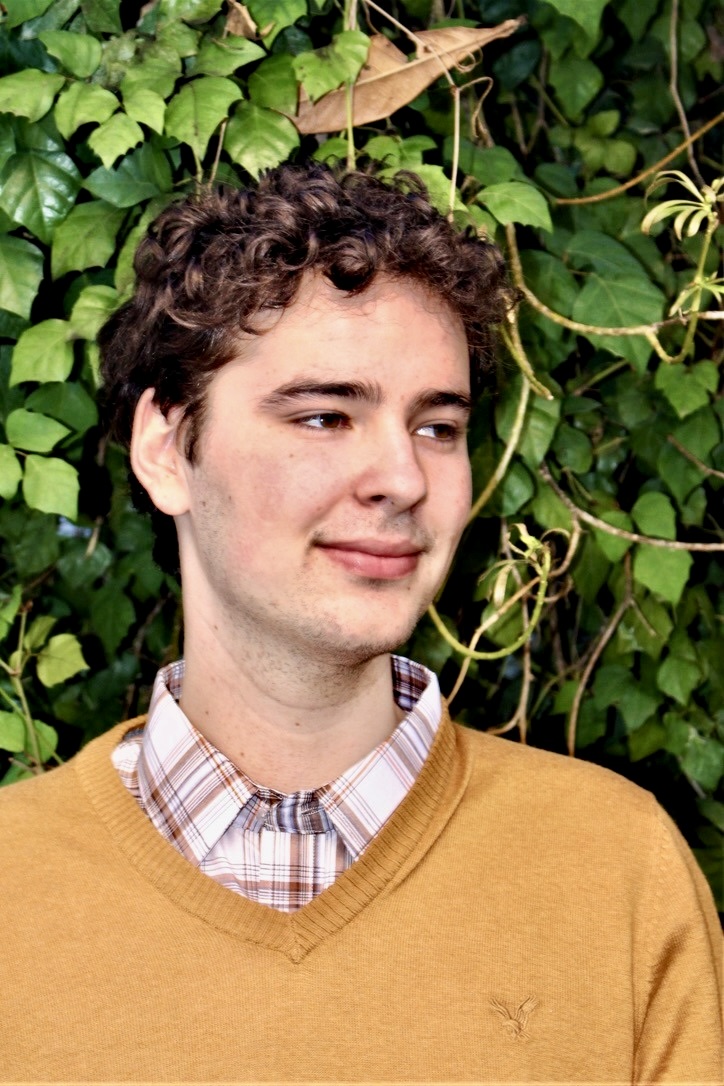 I specialize in using tools from historical political economy to study political violence and conflict processes. My research agenda is based on using original fine-grained data, quantitative and quasi-experimental methods, and nested qualitative analysis to uncover the causes, consequences, and dynamics of the 1948 Palestine War. This includes examining the impact of earlier events on the war, exploring the wartime shifts in strategic violence, and uncovering its long-term legacies in Israeli politics.
I specialize in using tools from historical political economy to study political violence and conflict processes. My research agenda is based on using original fine-grained data, quantitative and quasi-experimental methods, and nested qualitative analysis to uncover the causes, consequences, and dynamics of the 1948 Palestine War. This includes examining the impact of earlier events on the war, exploring the wartime shifts in strategic violence, and uncovering its long-term legacies in Israeli politics.
College: Lincoln College
Thesis Title: Signal in Slaughter: Endogenous Conflict Dynamics and Violence Against Civilians in the1948 Palestine War.
Supervisors: Professor Andrea Ruggeri and Professor Stathis Kalyvas FBA
Key Publications:
2023. "Legacies of Survival: Historical Violence and Ethnic Minority Behavior," Journal of Conflict Resolution (w/ Dan Miodowink)
2023. "Bloody Pasts and Current Politics: The Political Legacies of Violent Resettlement," Comparative Political Studies (w/ Dan Miodowink)
2022. "Social Cohesion and Collective Violence: Neighborhood-Level Explanations for Riots in East Jerusalem," Studies on Conflict and Terrorism (w/ Dan Miodowink)
Arthur P.B. Laudrain
Arthur P.B. Laudrain
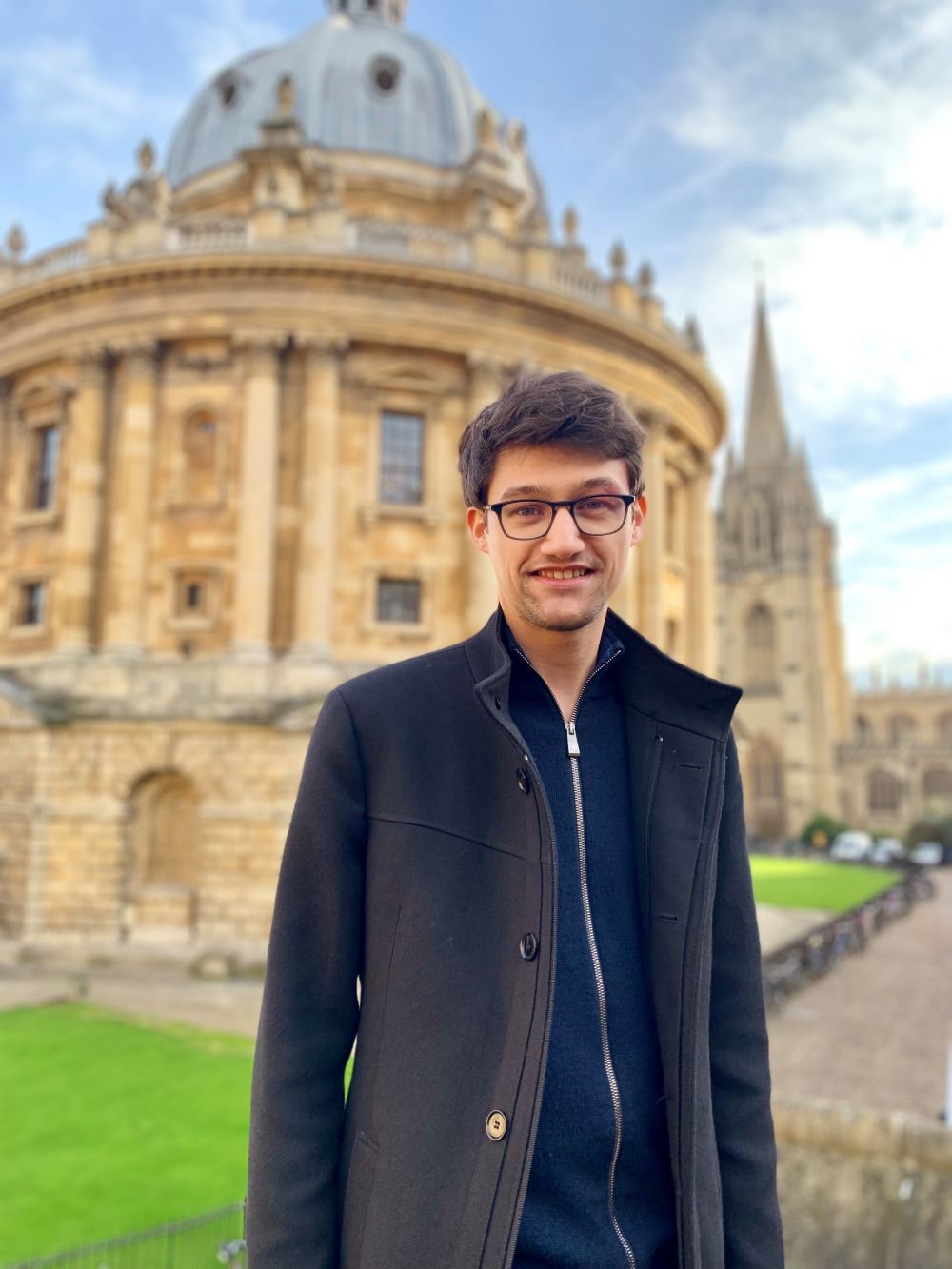 In my research, I explore the tepid foreign policy reactions of democracies to foreign electoral meddling. I introduce the concept of cyber-enabled foreign electoral interference (CYFI) and use a neo-classical realist approach to understand this complex issue. My hypothesis suggests that these lacking foreign policy responses arise from skewed threat perceptions and domestic political pressures. To validate this theory, I employ a methodological synergy design that combines causal narrative and within-case comparison with a multistage Millian comparison.
In my research, I explore the tepid foreign policy reactions of democracies to foreign electoral meddling. I introduce the concept of cyber-enabled foreign electoral interference (CYFI) and use a neo-classical realist approach to understand this complex issue. My hypothesis suggests that these lacking foreign policy responses arise from skewed threat perceptions and domestic political pressures. To validate this theory, I employ a methodological synergy design that combines causal narrative and within-case comparison with a multistage Millian comparison.
College: Wolfson College
Thesis Title: A Lesser Evil: Why Democracies Failto Push Back Against Cyber Election Interference
Supervisor: Lucas Kello
Key Publications:
2020. “Mapping the Known Unknowns of Cybersecurity Education: A Review of Syllabi on Cyber Conflict and Security”, Journal of Political Science Education (w/ Trey Herr and Max Smeets)
Ashley Wright
Ashley Wright
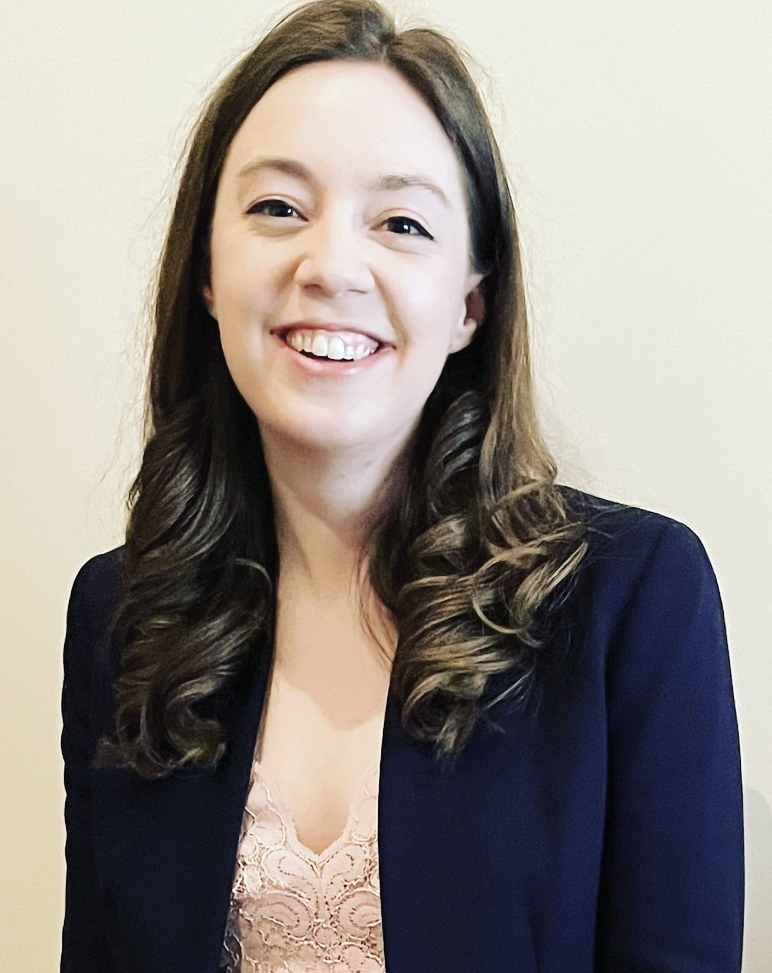 I explore the role of foreign aid as foreign policy for the U.S. Congress. I develop a new framework for understanding U.S. foreign aid and compile novel data on American foreign assistance to demonstrate the power of Congressional committees in foreign aid allocation.
I explore the role of foreign aid as foreign policy for the U.S. Congress. I develop a new framework for understanding U.S. foreign aid and compile novel data on American foreign assistance to demonstrate the power of Congressional committees in foreign aid allocation.
College: University College
Thesis Title: Foreign Aid as Congressional Foreign Policy
Supervisors: Professor Ben Ansell and Professor Desmond King
Bastián González-Bustamante
Bastián González-Bustamante
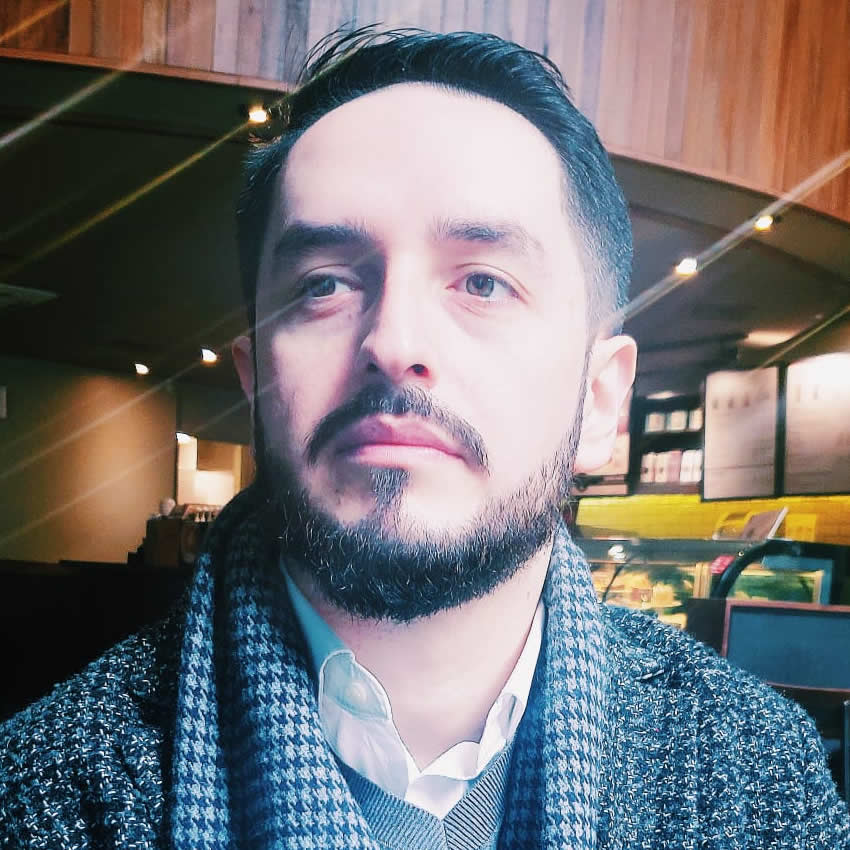 I explore the causes and consequences of ministerial turnover in presidential systems. My data-gathering is based on optical recognition algorithms and machine learning models. My empirical strategy relies on competing risks models and propensity score matching to estimate the causal effect of resignation calls on reallocations and dismissals in presidential cabinets. I also rely on instrumental variable regressions to measure the corrective effect of dismissing ministers who have received resignation calls on presidential popularity through a blame-shifting dynamic.
I explore the causes and consequences of ministerial turnover in presidential systems. My data-gathering is based on optical recognition algorithms and machine learning models. My empirical strategy relies on competing risks models and propensity score matching to estimate the causal effect of resignation calls on reallocations and dismissals in presidential cabinets. I also rely on instrumental variable regressions to measure the corrective effect of dismissing ministers who have received resignation calls on presidential popularity through a blame-shifting dynamic.
College: St Hilda’s College
Thesis Title: Critical Events and Ministerial Turnover in Latin American Presidential Democracies
Supervisor: Professor Petra Schleiter
Key Publications:
2022. "Ministerial stability during presidential approval crises: The moderating effect of ministers’ attributes on dismissals in Brazil and Chile," British Journal of Politics and International Relations
2022. "Cabinet Reshuffles and Parliamentary No‑Confidence Motions," Government and Opposition (w/ Tom Fleming and Petra Schleiter)
2022. "Power Hierarchies and Visibility in the News: Exploring Determinants of Politicians’ Presence and Prominence in the Chilean Press (1991-2019)," The International Journal of Press/Politics (w/ Orchard, X.)
2021. "Evolution and early government responses to COVID-19 in South America," World Development
César Fuster Llamazares
César Fuster Llamazares
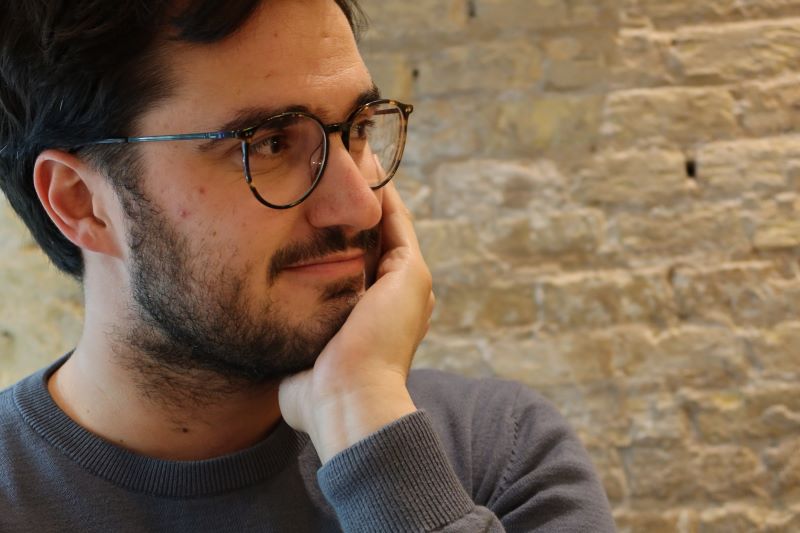 My research interests lie in understanding how individuals think about economic inequality and its sources. I use experimental methods to uncover individuals’ attitudes towards policies that aim at reducing economic inequality such as including immigrants into the welfare state, increasing taxes on the super-rich or decreasing the salary gap between highly and lowly paid occupations. Apart from looking at public support for certain policies, I also explore how individuals justify market inequality in the first place.
My research interests lie in understanding how individuals think about economic inequality and its sources. I use experimental methods to uncover individuals’ attitudes towards policies that aim at reducing economic inequality such as including immigrants into the welfare state, increasing taxes on the super-rich or decreasing the salary gap between highly and lowly paid occupations. Apart from looking at public support for certain policies, I also explore how individuals justify market inequality in the first place.
College: Lady Margaret Hall
Thesis title: Fairness beliefs and preferences for redistribution.
Supervisors: Professor F David Rueda and Professor Jane Gingrich.
Christoph Sponsel
Christoph Sponsel
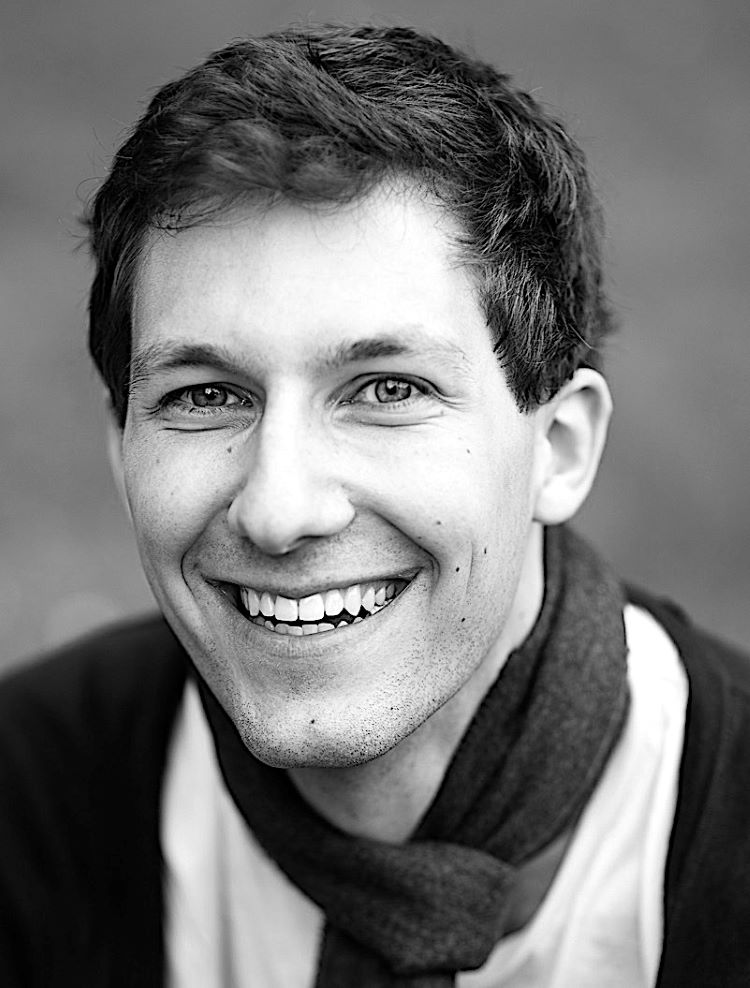 My research focuses on protests during civil conflict peace processes with a regional focus on Latin America. For my dissertation, I explore demobilized rebels' involvement during protests following Colombia's 2016 peace agreement. In particular, I analyse why some former rebels mobilize but not others, their participation's impact, and how such involvement alters public opinion. I use a mixed methods approach to investigate these research questions, including qualitative analyses based on 14 months of multisite field research in Colombia and a survey experiment.
My research focuses on protests during civil conflict peace processes with a regional focus on Latin America. For my dissertation, I explore demobilized rebels' involvement during protests following Colombia's 2016 peace agreement. In particular, I analyse why some former rebels mobilize but not others, their participation's impact, and how such involvement alters public opinion. I use a mixed methods approach to investigate these research questions, including qualitative analyses based on 14 months of multisite field research in Colombia and a survey experiment.
College: St Hugh’s College
Thesis title: When Rebels Become Protesters: The Involvement of Demobilized Insurgents During Social Uprisings in Colombia
Name of Supervisor: Professor Stathis Kalyvas
Faye Curtis
Faye Curtis
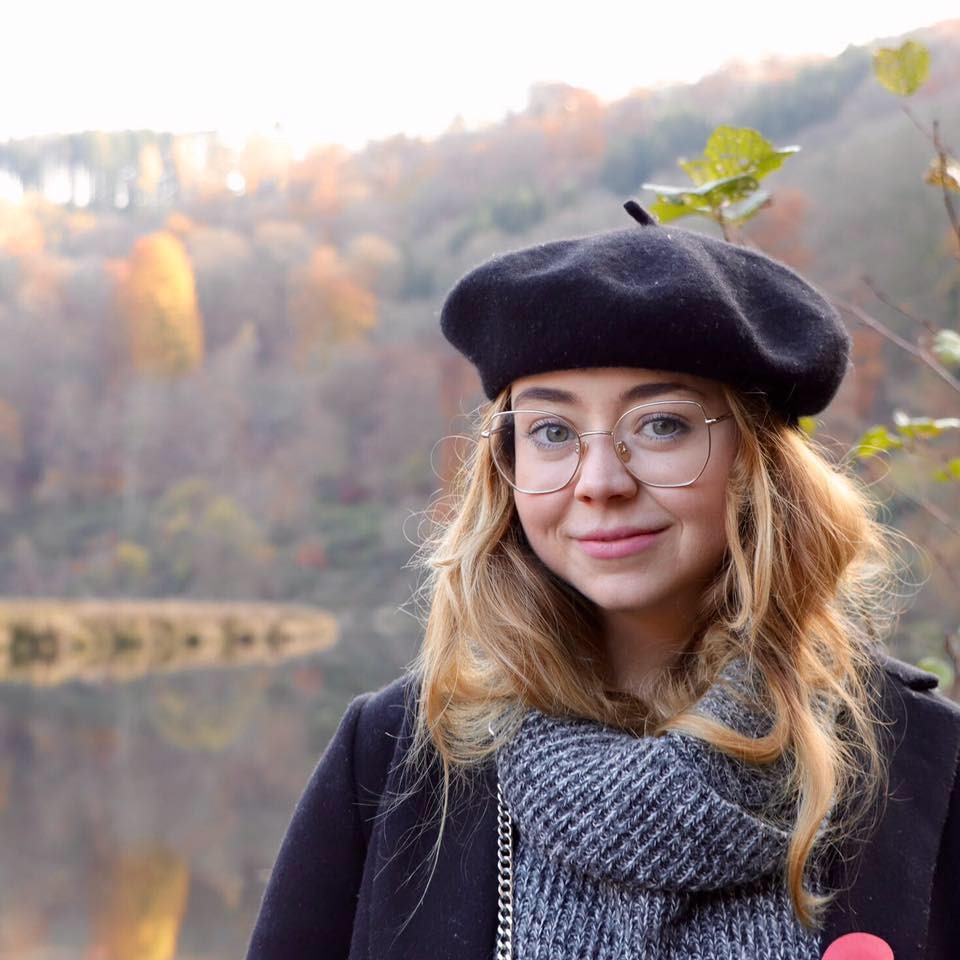 In recent decades, more than twenty state militaries have lifted restrictions on women’s participation in armed combat, reversing centuries of tradition and signalling the death of a widely held and deeply rooted taboo. Through comparative historical analysis, I examine this transition in three countries – the United Kingdom, France, and Israel – and I advance a new theory for how ‘norm revolution’ occurs.
In recent decades, more than twenty state militaries have lifted restrictions on women’s participation in armed combat, reversing centuries of tradition and signalling the death of a widely held and deeply rooted taboo. Through comparative historical analysis, I examine this transition in three countries – the United Kingdom, France, and Israel – and I advance a new theory for how ‘norm revolution’ occurs.
College: The Queen’s College
Thesis Title: Woman, the State, and War: a Theory of Norm Revolution
Supervisors: Professor Dominic Johnson and Professor Patricia Owens
Giuseppe Spatafora
Giuseppe Spatafora
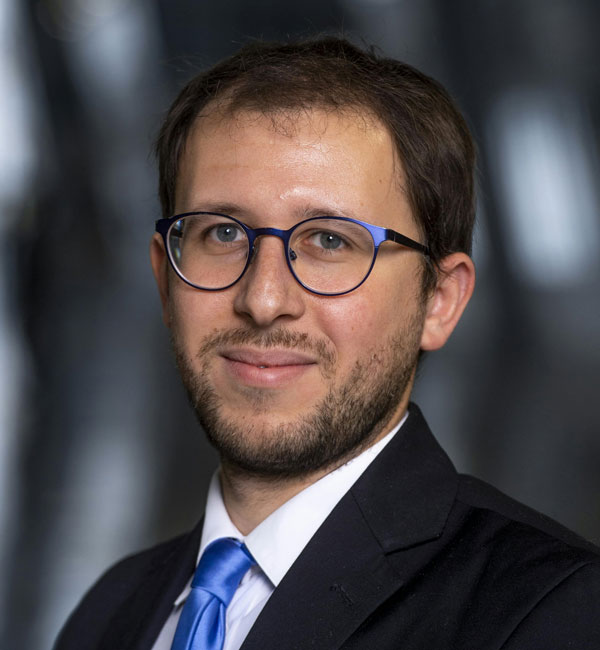 My research explores the dynamics of foreign support in conflict. In my dissertation, I ask why some states switch from providing military assistance to warring parties short of combat troops (such as weapons and training) to direct intervention with their own forces over the course of the war. To explain this phenomenon, I develop a theory of foreign support escalation, suggesting that states are incentivised to directly intervene in combat when the recipient of support proves to be ineffective and immediate action is needed on the battlefield. I test the validity of my theory on case studies of civil war in the 20th and 21st century, from the Spanish Civil War to Russia’s intervention in the Donbas in 2014.
My research explores the dynamics of foreign support in conflict. In my dissertation, I ask why some states switch from providing military assistance to warring parties short of combat troops (such as weapons and training) to direct intervention with their own forces over the course of the war. To explain this phenomenon, I develop a theory of foreign support escalation, suggesting that states are incentivised to directly intervene in combat when the recipient of support proves to be ineffective and immediate action is needed on the battlefield. I test the validity of my theory on case studies of civil war in the 20th and 21st century, from the Spanish Civil War to Russia’s intervention in the Donbas in 2014.
College: Kellogg College
Thesis Title: “When Proxy Strategy Fails: Why Foreign Sponsors Directly Engage In Combat, from Spain to the Donbas.”
Supervisor: Professor Andrea Ruggeri, Professor Duncan Snidal
Key publications:
2023. “The Future of Proxy Wars” [with Vladimir Rauta]. Chapter in Artur Gruszczak and Sebastian Kaempf (Eds.), The Routledge Handbook of the Future of Warfare.
2023. “A Proxy War Before the Cold War? European Powers in Spain, 1936-39.” Chapter in Assaf Moghadam, Vladimir Rauta and Michel Wyss (Eds.), Routledge Handbook of Proxy Wars.
2021. “Forum: Conflict Delegation in Civil Wars” [with Niklas Karlén et al.]. International Studies Review
2020. “The UK in NATO: London’s Transatlantic Bargain and the Dilemmas of Brexit” [with Linda Slapakova]. Chapter in Michele Testoni (Ed.), NATO and Transatlantic Relations in the 21st century: Foreign and Security Policy Perspectives.
Gonzalo Contreras Aguirre
Gonzalo Contreras Aguirre
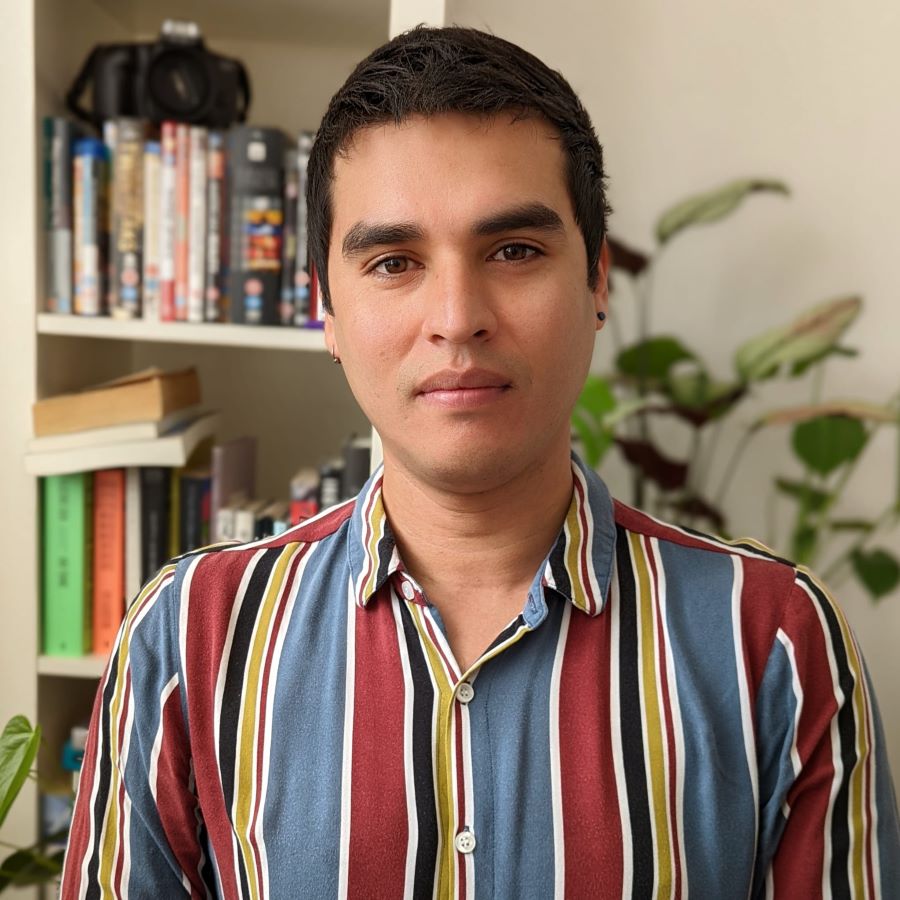 I am interested in questions related to political representation, political participation, and citizen involvement in politics. My thesis investigates why and how programmatic parties incorporate clientelistic strategies as part of their electoral toolkit. Leveraging evidence collected during several field-trips to Chile, I contend that programmatic parties outsource the cost of clientelism to local associations in exchange for targeted distribution. By showing that clientelism in programmatic settings is demand-driven, my research highlights the role of associativity as an overlooked variable that explains the diversity of strategies parties may use to connect with voters.
I am interested in questions related to political representation, political participation, and citizen involvement in politics. My thesis investigates why and how programmatic parties incorporate clientelistic strategies as part of their electoral toolkit. Leveraging evidence collected during several field-trips to Chile, I contend that programmatic parties outsource the cost of clientelism to local associations in exchange for targeted distribution. By showing that clientelism in programmatic settings is demand-driven, my research highlights the role of associativity as an overlooked variable that explains the diversity of strategies parties may use to connect with voters.
College: St. Hugh’s College
Thesis Title: Clientelistic Dynamics in Programmatic Settings: Evidence From Chile
Supervisors: Professor Ezequiel González-Ocantos and Professor Timothy Power
Key Publications:
2023. “Demanding non-programmatic distribution: evidence from local governments in Chile,” Policy Studies (w/ Belmar, F., M. Morales, and C. Troncoso)
2018. "Ethnic solidarity and the vote: Mapuche candidates and voters in Chile," Journal of Ethnic and Migration Studies (w/ Morales, M.)
2017. "Malestar con la representación democrática en América Latina," Política y Gobierno (w/ Cantillana C., Morales,M., Oliva, D. and Perelló, L.)
2015. "The Return of Censitary Suffrage? The effects of automatic voterregistration and voluntary voting in Chile," Democratization (w/ Joignant, A. and Morales, M.)
Kofi Gunu
Kofi Gunu
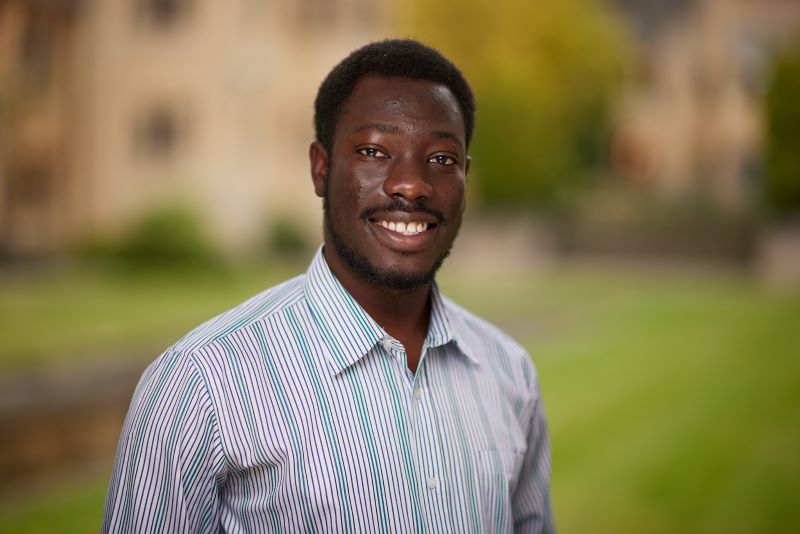 My research seeks to understand why some crisis-hit countries turn to the IMF for assistance, while others do not. To unravel this puzzle, I argue that we must pay attention to how creditors’ ability to withdraw or withhold capital limits governments’ room for manoeuvre and systematically shapes the choice to enter into Fund programs. My work draws on fieldwork research in Ghana, Nigeria, and Côte d’Ivoire, coupled with analysis of original panel data covering IMF conditional lending from 1984–2019.
My research seeks to understand why some crisis-hit countries turn to the IMF for assistance, while others do not. To unravel this puzzle, I argue that we must pay attention to how creditors’ ability to withdraw or withhold capital limits governments’ room for manoeuvre and systematically shapes the choice to enter into Fund programs. My work draws on fieldwork research in Ghana, Nigeria, and Côte d’Ivoire, coupled with analysis of original panel data covering IMF conditional lending from 1984–2019.
College: Nuffield College
Thesis Title: When All Else Fails: Borrowing Governments, Structural Power, and the Puzzle of IMF Programme Participation
Supervisors: Professor Ben Ansell and Professor Ricardo Soares de Oliveira
Kye Allen
Kye Allen
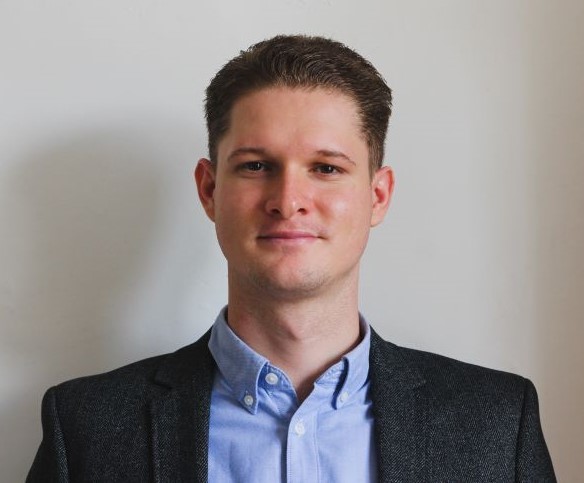 My research explores the history of Anglo-American fascist international thought during the interwar period through to the mid-twentieth century. I am particularly concerned with ideas of fascist internationalism and recovering intersections between far-right actors and the disciplinary history of International Relations and political science. Beyond my doctoral dissertation, my research also encompasses contemporary forms of far-right extremism and conspiracy theories.
My research explores the history of Anglo-American fascist international thought during the interwar period through to the mid-twentieth century. I am particularly concerned with ideas of fascist internationalism and recovering intersections between far-right actors and the disciplinary history of International Relations and political science. Beyond my doctoral dissertation, my research also encompasses contemporary forms of far-right extremism and conspiracy theories.
College: St Antony’s College
Thesis Title: Mythologising the Ultra-Nation, Theorising the International: Anglo-American Fascist International Thought and the Disciplinary History of International Relations
Supervisor: Edward Keene
Key Publications:
2023. "Why is There No History of Fascist International Thought?" Millennium
2023. "'A Pro-Fascist English Lady': The International Thought of Muriel Innes Currey," Global Studies Quarterly
2022. "An Anarchical Society (of Fascist States): Theorising Illiberal Solidarism," Review of International Studies
Natasja Rupesinghe
Natasja Rupesinghe
 My research examines insurgencies, stabilization operations and community agency in civil war, particularly in the Sahel. In my thesis, I explore community responses to jihadist mobilisation in Central Mali. Why do some communities ally with or oppose jihadists? Drawing on hundreds of interviews with leaders and citizens in Central Mali affected by the war, I challenge ethnicity or religious explanations, illustrating how local rivalries, existing conflicts and strategic dynamics shape collective community decisions under duress.
My research examines insurgencies, stabilization operations and community agency in civil war, particularly in the Sahel. In my thesis, I explore community responses to jihadist mobilisation in Central Mali. Why do some communities ally with or oppose jihadists? Drawing on hundreds of interviews with leaders and citizens in Central Mali affected by the war, I challenge ethnicity or religious explanations, illustrating how local rivalries, existing conflicts and strategic dynamics shape collective community decisions under duress.
College: Nuffield College
Thesis title: Community Responses to Jihadist Mobilisation in Central Mali
Supervisor: Professor Stathis Kalyvas
Key Publications:
2019. “Women, Peace, Security and Female Peacekeeping Personnel.” In The Oxford Handbook of Women, Peace, and Security, Oxford University Press (w/ Eli Stamnes and John Karlsrud)
2018. “The Joint Force of the G5 Sahel: An Appropriate Response to Combat Terrorism,” Conflict Trends
Samuel Seitz
Samuel Seitz
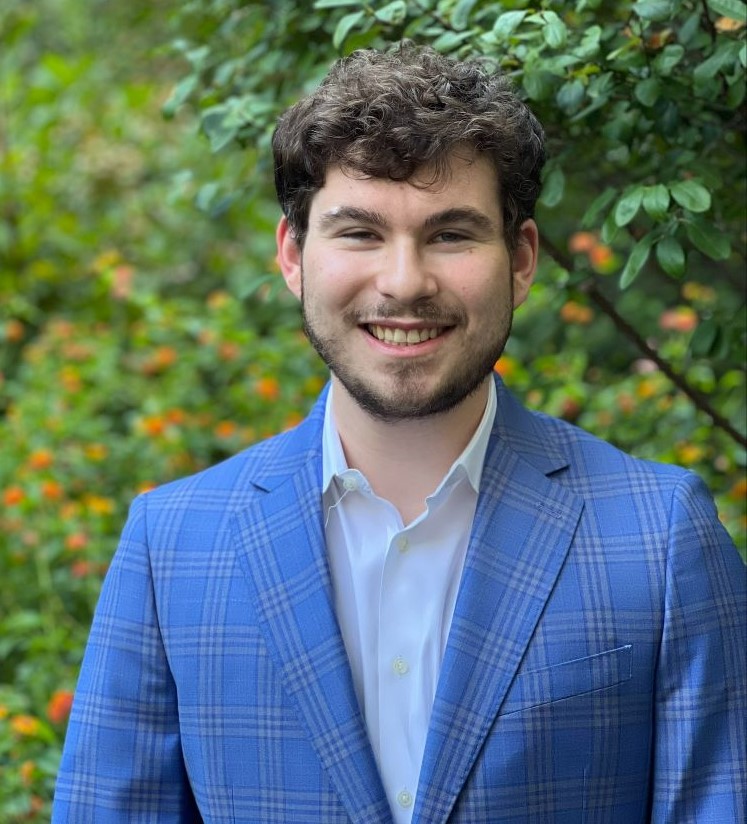 I examine how countries design their militaries. My dissertation exemplifies this work, using a series of case studies to evaluate when and why countries choose to procure militarily dubious status-enhancing platforms. I have also published on military decision-making in Ukraine prior to Russia’s invasion and on the efficacy of madman nuclear strategies. I currently have several working papers evaluating how the addition of members to an alliance, and changes to alliance members’ procurement decisions, affect other members’ military strategies.
I examine how countries design their militaries. My dissertation exemplifies this work, using a series of case studies to evaluate when and why countries choose to procure militarily dubious status-enhancing platforms. I have also published on military decision-making in Ukraine prior to Russia’s invasion and on the efficacy of madman nuclear strategies. I currently have several working papers evaluating how the addition of members to an alliance, and changes to alliance members’ procurement decisions, affect other members’ military strategies.
College: Balliol College
Thesis Title: Purchasing Prestige or Seeking Security: How Status Concerns and External Threats Shape Military Force Design
Supervisor: Professor Andrea Ruggeri
Key Publications:
2023. "Letting sleeping bears lie: Ukraine’s cautious approach to uncertainty before the war," Contemporary Security Policy
Simeon Goldstraw
Simeon Goldstraw
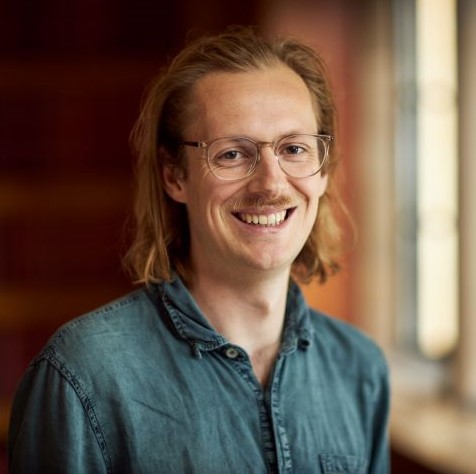 I am a political theorist working relentlessly to defend an entitlement to leisure. Using an Aristotelian-Marxist account of leisure, I argue that citizens should have a capability for leisure which awards them with free time and access to leisure goods like arts and culture, sports, and public spaces. I also have an interest in philosophical debates surrounding freedom of expression and political liberalism.
I am a political theorist working relentlessly to defend an entitlement to leisure. Using an Aristotelian-Marxist account of leisure, I argue that citizens should have a capability for leisure which awards them with free time and access to leisure goods like arts and culture, sports, and public spaces. I also have an interest in philosophical debates surrounding freedom of expression and political liberalism.
College: Nuffield College
Thesis title: Establishing a Political Claim to Leisure
Supervisors: Professor Cécile Laborde and Paul Billingham
Key Publications:
Forthcoming. “'It was just a joke!' Comedy and freedom of speech," European Journal of Political Theory
Wilin Buitrago Arias
Wilin Buitrago Arias
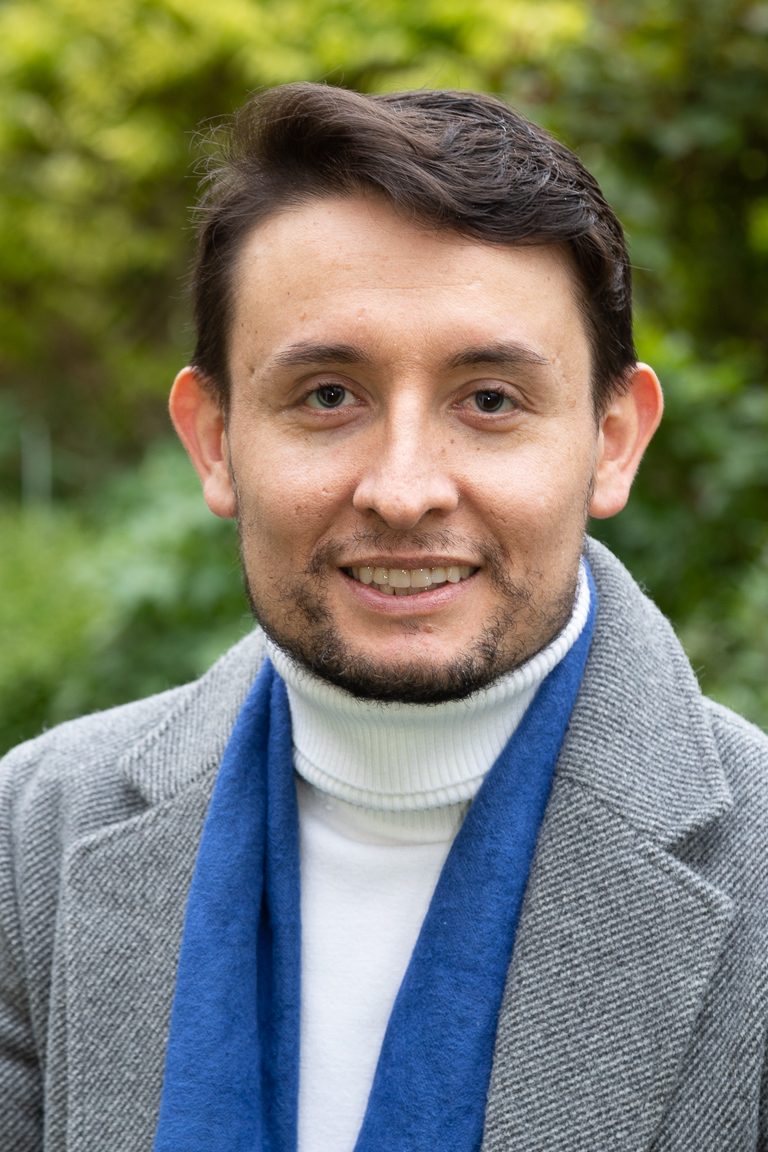 As a comparativist, I am interested in political parties and institutional development in post-conflict settings; collective political violence; electoral behaviour; and human rights. My doctoral dissertation explains divergent party building trajectories in the aftermath of Latin American civil wars. It combines theory development with rich empirics based on structured and unstructured data, including thorough analysis of in-depth interviews, archival material, and surveys.
As a comparativist, I am interested in political parties and institutional development in post-conflict settings; collective political violence; electoral behaviour; and human rights. My doctoral dissertation explains divergent party building trajectories in the aftermath of Latin American civil wars. It combines theory development with rich empirics based on structured and unstructured data, including thorough analysis of in-depth interviews, archival material, and surveys.
College: Campion Hall
Thesis Title: Designed for War, (Un)Successful in Democracy: Party-Building after Civil Conflict in Latin America
Supervisor: Professor Timothy Power


